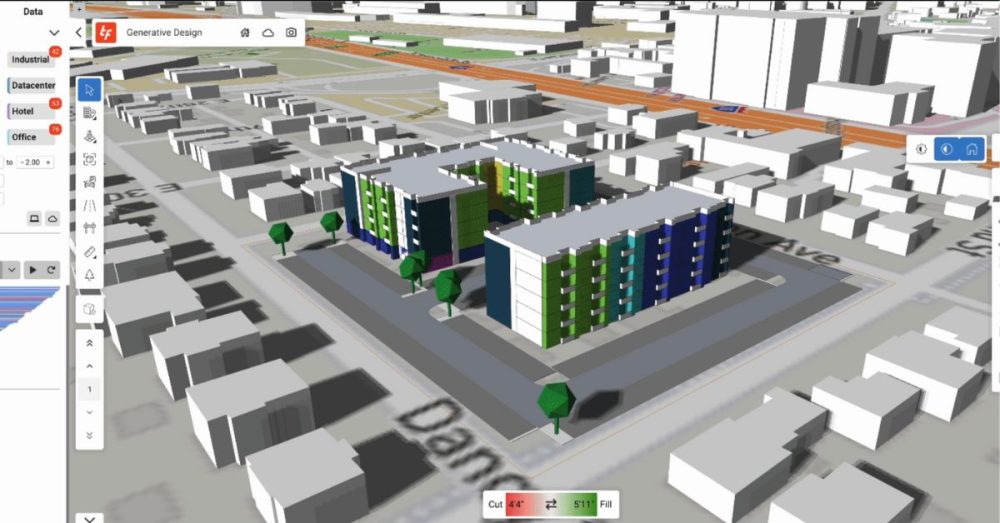A Dallas real estate tech company is rolling out a computational AI program designed to help clients generate site plans with real-time industry metrics.
“TestFit has been at the forefront of building optimization since the company’s first line of code was written in 2016,” according to a news release. “TestFit Site Solver, one of the most powerful computational AI co-creation tools today, allows users to generate site plans instantly with real-time insights into design, cost, and constructability. Generative Design is the next step forward for TestFit, allowing AI to test site solutions, on its own, based on specific project requirements.”
TestFit was founded by college roommates Clifton Harness and Ryan Griege. They created TestFit Generative Design to give users the ability to “easily define the targets they need with filters like floor area ratio (FAR), parking ratio, and yield on cost, to find the best option for their specific needs.”
Calling itself “the leading real estate feasibility platform for developers, architects, and contractors to realize the full potential of land through trusted automation,” TestFit evaluates more than 650 deals each week. The company is made up of “a remote team of industry professionals around the world.”
“Real estate development is innately bespoke,” Harness said in the release. “Every piece of land is unique, requiring every building to be a prototype. While experience and local knowledge can be applied to decision-making, with Generative Design, a machine can test every possible configuration, inclusive of what we would never even think to try.”
The “first of its kind for architecture,” the TestFit program separates itself from existing software that caters to smaller-scale production, such as industrial and manufacturing design.
“TestFit continues to lead the charge in advancing the innovation of AI and real estate feasibility, offering a building optimization tool that helps reinvent the development process,” reads the press release.
Company spokesperson Laura Paciano told The Dallas Express that TestFit works with several municipalities in site planning.
“Currently, the City of Delaware and the Housing Authority of Tampa are both TestFit Customers (and a few more that should be coming on board soon),” she said in an email. “We also have architect customers, like RBA Architects who are working with the Virginia Housing Authority to solve its housing needs. I can also share a case study we did with Cascadia Partners, an urban planner, who works with the City of Portland to assess the impact that changing zoning requirements could have on solving their housing crisis.”
And as the Dallas City Council prepares to vote on adopting the comprehensive land use plan ForwardDallas, Paciano said TestFit wants to get involved.
“We would love to work with the City of Dallas on its ForwardDallas goals.”
The Dallas Express has reported that the Department of Planning and Development has struggled to resolve permit backlogs, long turnaround times, and various inefficiencies under former City Manager T.C. Broadnax.
According to Dallas Innovates, San Francisco’s Prologis Ventures invested $20 million in TestFit with Dallas-based Perot Jain and Parkway Venture Capital of New York in 2022. Two years earlier, Parkway contributed $2 million in seed funding for TestFit.


